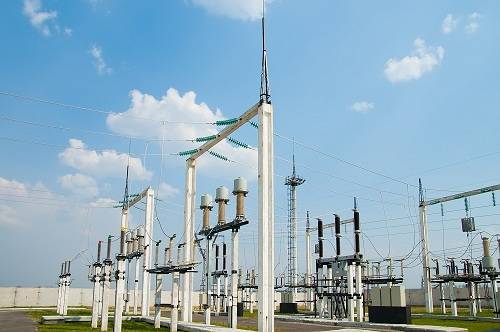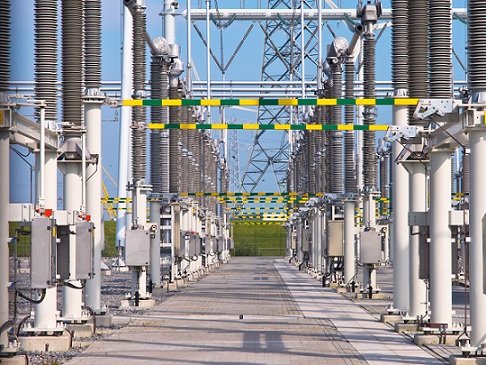
An electric power transformer Damage is one of the most important elements of the modern electric grid no matter where in the world a particula grid may be located. Transformer failures result in significant financial expenditures, and will require the transmission company to buy new transforners or repair the damaged ones at significant cost and service interuptions.
Many historians note that there was great industrial boom observed in the first decade followintg the end of World War II. At that time, there was a rapid increase in electric power consumption. To meet the growing demand for electric power, new transformers had to constantly be put into operation. Since that time, mant of the older transformers have become outdated and pose a big risk of unscheduled service interuptions.
Older transformers’ obsolescence however, is not the only problem facing the modern power grids. The power loads on the obsolete transformers are increasing because of ever increasing power consumption. It requires significant expenditures to replace the broken or obsolete transformer since the price for a new transformer is very high.
It is therefore, advisable to take measures to extend the service life of transformers already in service. To succeed in undertaking a sucessful preventive maintenance program, one should understand the nature of the failures that make transformers unserviceable in the first place.
In 2003, the International Association of Engineering Insurers (IMIA) started to explore the reasons for transformer failures servicing the combined USA power grids. The results were rather interesting. Table 1 shows the economic losses caused by different types of transformer failures.
Table 1
Economical Losses Caused by Different Transformer failures
|
Nature of Failure |
Amount of Cases |
Economical Loss in $ |
| Insulation defects |
24% |
149,967,277.00 |
| Problems with designing, material or installation |
22% |
64,969,051.00 |
| Unknown failures |
15% |
29,776,245.00 |
| Oil contamination |
4% |
11,836,367.00 |
| Overloading |
5% |
8,568,768.00 |
| Inflammation/explosion |
3% |
8,045,771.00 |
| Network overvoltage |
4% |
4,959,691.00 |
| Operational failures |
5% |
3,518,783.00 |
| Water ingress |
2% |
2,240,198.00 |
| Poor contacts |
6% |
2,186,725.00 |
| Lightning stroke |
3% |
657,935.00 |
| Insulation moistening |
1% |
175,000.00 |
| In total |
94% |
286,628,811.00 |
It is not an overstatement to say that if proper and timely preventive maintenance of the insulating systems is performed, many, if not all transformer failures can be prevented. The insulating system of the power transformer consists of bith solid and liquid insulation. The solid insulation is made of hygroscopic material (cellulose) also known as “Kraft Paper.” The liquid insulation features a dielectric fluid known as transformer insulating oil. In general, these two kinds of insulation are interdependent, but also help to contaminate each because degradation products from the solid insulation may get into oil and oil oxidation sludges may penetrate into the solid insulation from the oil. Simply changing the transformer oil therefore, will not completely resolve the problem of restoring and cleaning the entire insulation system. Unfortunatelt, oxidation products are accumulated in the cellulose insulation and are not removed when oil is simply changed. And when only an oil changed is performed, these oxidation products will migrate get into new oil accelerating the aging process of the new oil and shortening its effective service life. Additionally, the contamination that remains in the solid insulation will continue to degrade and damage the Kraft Paper leading to transformer failure.
This problem may be solved with the advanced GlobeCore regeneration technologies. The GlobeCore mobile oil recycling stations, designated as the CMM-R line of equipment may be connected to either an energized or non-energized transformer. In such a way, oil is circulated through a closed path: used oil flows to the oil treatment station and goes back to the transformer being cleaned and restored. The contaminants resulting from the aging process are washed out due to the constant circulation. This advanced type of equipment performs a complete oil regeneration service and removes all contamination for the transformer core, windings and solid insulation.
GlobeCore mobile oil stations perform the following operations:
- filtration with or without heating (processed oil is of 9th ISO 4406 purity class and with nominal filtration fineness, ranging from 0.5…1 micron);
- dehydration (the moisture content of the processed oil is no more than 5 g/t (5ppm);
- degassing (volumetric gas content of the processed oil is no more than 0.1 %);
- increase the dielectric breakdown voltage (no less than 70 kV (kilovolt));
- drying of electrical equipment and oil purification simultaneously;
- regenerate insulating oil, using bleaching clay;
- vacuum transformers and other electrical equipment;
- remove acids;
- remove soluble oil decomposition products;
- lighten insulating oil; and
- restore oxidation and gasification stability;
The GlоbeCоre technologies provide for service life extension of transformers and reduction of financial expenditures on maintenance. Save money with GlоbeCоre!

